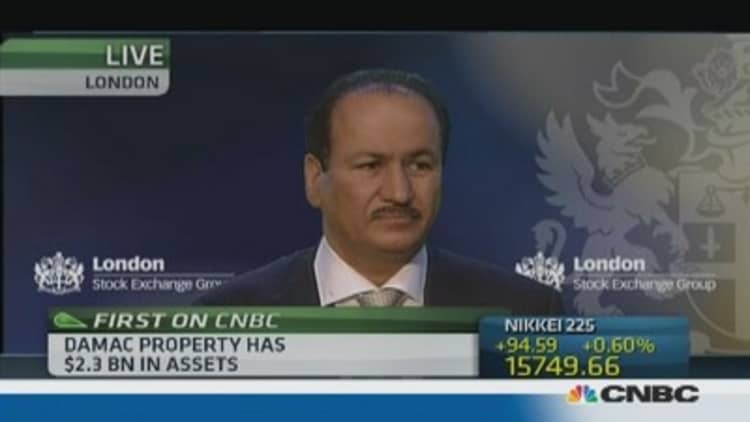Dubai has struck an agreement with the central bank of the United Arab Emirates and the Abu Dhabi government to refinance $20 billion worth of debt due later this year, the government announced late Sunday.
The landmark deal extends maturities by an additional five years, bringing down its interest rate from four percent to just one percent.
"This agreement comes within the framework…to enhance the competitiveness of the economy of the United Arab Emirates at the regional and global levels," the statement, which was only carried in Arabic by the country's official news agency WAM.

Dubai still has substantial debt on its books from the excesses of earlier boom years that predates its evolution into a hub for trade, logistics and financial services. With the country's economy reeling in the aftermath of the financial crisis, government-owned Dubai World shook global financial markets when it called for a standstill on outstanding debt in 2009.
At the time, neighbouring Abu Dhabi—with major financial muscle from its oil wealth —tossed the country a financial lifeline that gave it some breathing room. Since then, Dubai's economy has recovered strongly, culminating in its scoring a big win to host the 2020 World Expo.
(Read more: Dubai celebrates winning right to host Expo-2020)
"This should prove supportive for sentiment and reaffirms strong ties to Abu Dhabi at the sovereign level," Jean-Michel Saliba, Middle East – North Africa economist at Bank of America-Merrill Lynch Global Research, wrote in a note to clients on Monday.
Although an agreement of some kind had been largely anticipated by financial market watchers, analysts have speculated about the exact terms of a deal offered by Abu Dhabi.
"Although the extension is for five years, versus the rumored 10 years previously, the official announcement and its mentioning of the Dubai Expo 2020 makes it amply clear in our view that a further extension is in in the cards, given that the newly extended facilities will essentially mature close to the [event] itself," Saliba added.
Simon Williams, Middle East Chief Economist at HSBC, shared a similar view, describing the terms as "generous", and pointed to the "strength of on-going support from the wealthy federation for Dubai".
"According to IMF data, the refinancing leaves the Government of Dubai facing repayments of some six billion over the coming four years, the equivalent of just five percent of [estimated] 2014 GDP," he explained to CNBC.
Dubai's recovery accelerated with the onset of the 2011 "Arab Spring," which engulfed several major Middle East countries in political upheaval and reverberated across the world. The turmoil, however, helped solidify Dubai's status as a safe haven, especially as chaos rattled neighbors Egypt and Syria. The Emirate is also basking in a recent upgrade to emerging market status by index compiler MSCI.
(Read more: MSCI ups Qatar and UAE to emerging market status)
However, the country's government-related entities still face an uphill battle, with an estimated $40-50 billion in obligations coming due before the end of 2017.
Officials have forecast that Dubai's economy will grow by 4.7 percent this year. Its DFM benchmark stock index, the world's best performing market in 2013, closed 1.63 percent higher on Monday.
—By CNBC's Yousef Gamal El-Din. Follow him @youseftv.

